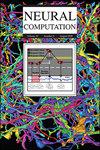Sparse Generalized Canonical Correlation Analysis: Distributed Alternating Iteration-Based Approach
IF 2.7
4区 计算机科学
Q3 COMPUTER SCIENCE, ARTIFICIAL INTELLIGENCE
引用次数: 0
Abstract
Sparse canonical correlation analysis (CCA) is a useful statistical tool to detect latent information with sparse structures. However, sparse CCA, where the sparsity could be considered as a Laplace prior on the canonical variates, works only for two data sets, that is, there are only two views or two distinct objects. To overcome this limitation, we propose a sparse generalized canonical correlation analysis (GCCA), which could detect the latent relations of multiview data with sparse structures. Specifically, we convert the GCCA into a linear system of equations and impose ℓ1 minimization penalty to pursue sparsity. This results in a nonconvex problem on the Stiefel manifold. Based on consensus optimization, a distributed alternating iteration approach is developed, and consistency is investigated elaborately under mild conditions. Experiments on several synthetic and real-world data sets demonstrate the effectiveness of the proposed algorithm.稀疏广义典型相关分析:基于分布式交替迭代的方法。
稀疏典型相关分析(CCA)是一种有用的统计工具,可用于检测具有稀疏结构的潜在信息。然而,稀疏 CCA(稀疏性可视为典型变量的拉普拉斯先验)仅适用于两个数据集,即只有两个视图或两个不同的对象。为了克服这一局限,我们提出了一种稀疏广义典型相关分析(GCCA),它可以检测具有稀疏结构的多视图数据的潜在关系。具体来说,我们将 GCCA 转换为线性方程组,并施加 $\ell _1$ 最小化惩罚以追求稀疏性。这就产生了一个 Stiefel 流形上的非凸问题。基于共识优化,我们开发了一种分布式交替迭代方法,并在温和条件下对一致性进行了详细研究。在几个合成和真实世界数据集上的实验证明了所提算法的有效性。
本文章由计算机程序翻译,如有差异,请以英文原文为准。
求助全文
约1分钟内获得全文
求助全文
来源期刊

Neural Computation
工程技术-计算机:人工智能
CiteScore
6.30
自引率
3.40%
发文量
83
审稿时长
3.0 months
期刊介绍:
Neural Computation is uniquely positioned at the crossroads between neuroscience and TMCS and welcomes the submission of original papers from all areas of TMCS, including: Advanced experimental design; Analysis of chemical sensor data; Connectomic reconstructions; Analysis of multielectrode and optical recordings; Genetic data for cell identity; Analysis of behavioral data; Multiscale models; Analysis of molecular mechanisms; Neuroinformatics; Analysis of brain imaging data; Neuromorphic engineering; Principles of neural coding, computation, circuit dynamics, and plasticity; Theories of brain function.
 求助内容:
求助内容: 应助结果提醒方式:
应助结果提醒方式:


